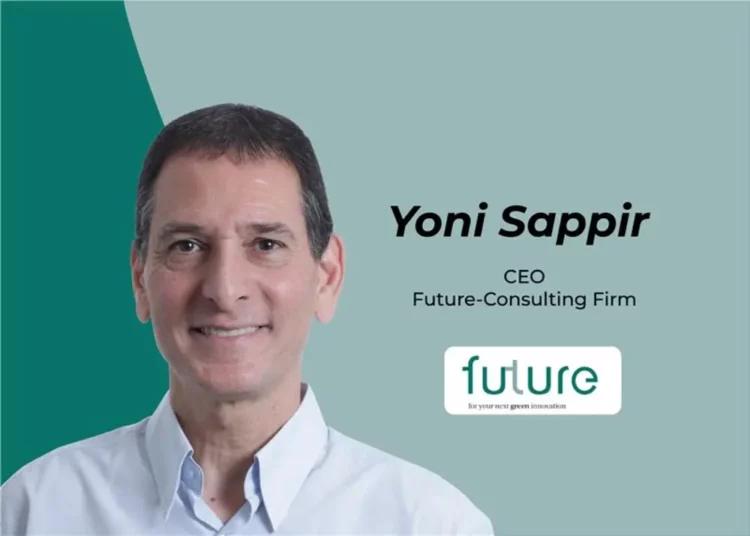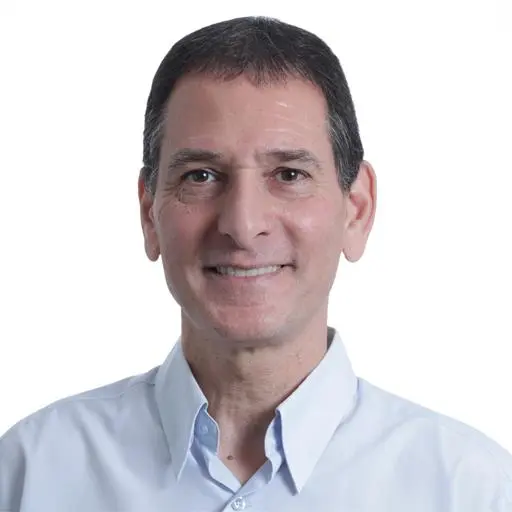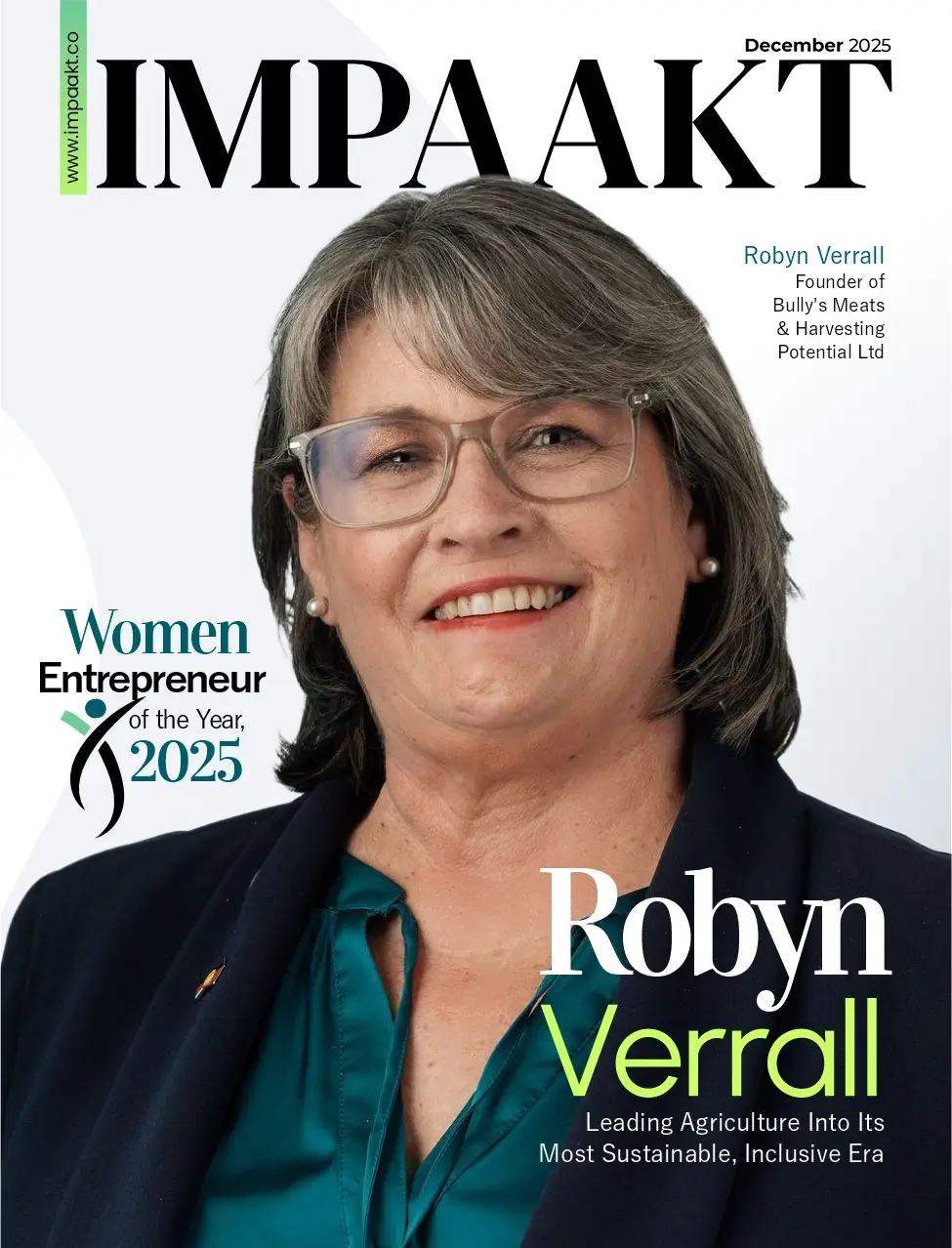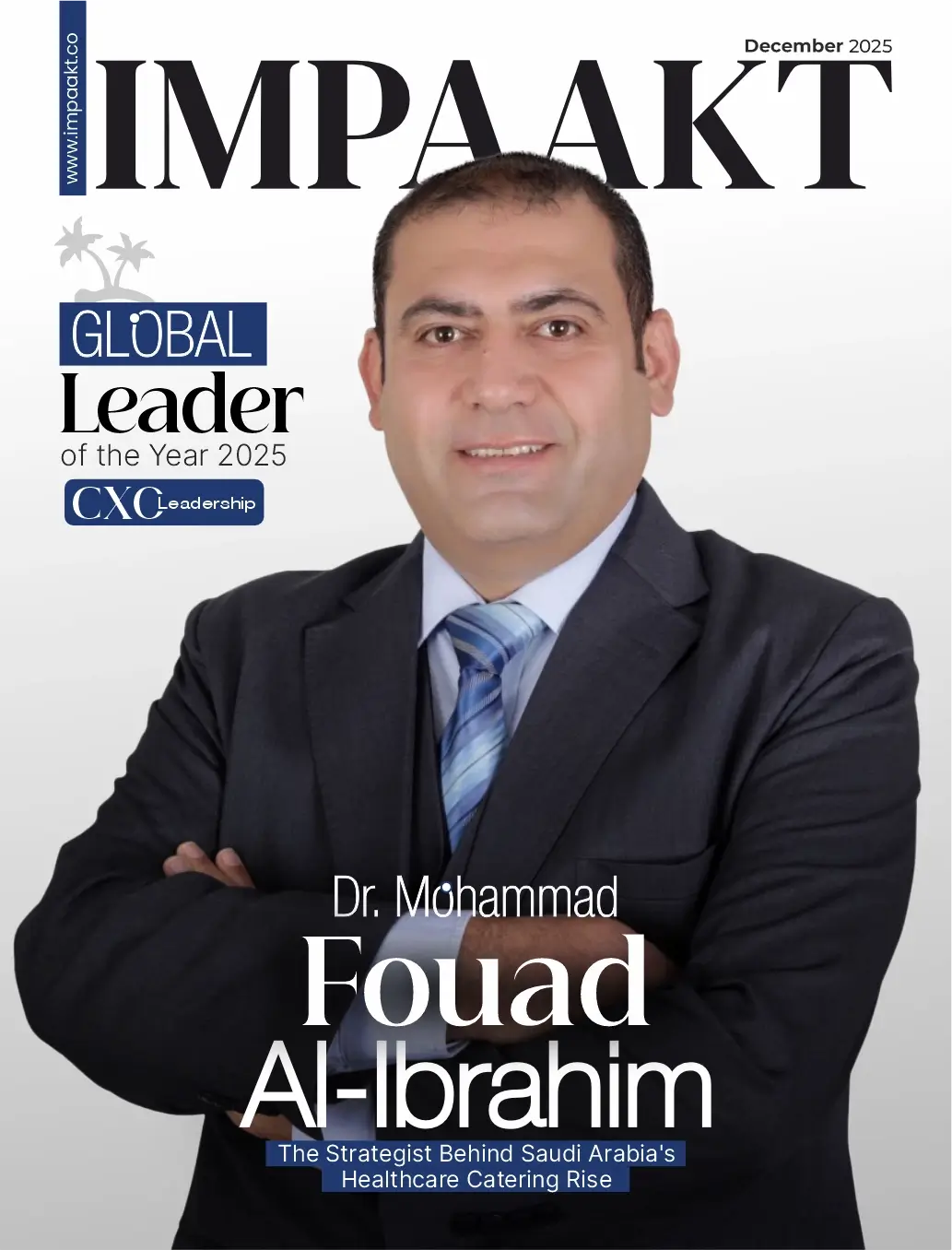Some leaders chase profit; Yoni Sappir, CEO of Future-Consulting Firm, chases purpose.
Guided by a commitment to combat the climate crisis, pollution, and biodiversity loss, Yoni sappir has built a career around green-tech innovation and systemic change. From doubling Israel’s renewable energy targets to mentoring young visionaries at climate hackathons, his work embodies the boldness and creativity needed to tackle global challenges.
At Future – Consulting Firm, Yoni Sappir connects groundbreaking ideas with real-world impact, creating a ripple effect of sustainability that spans industries and borders.
Inspired by his visionary approach to addressing global environmental challenges, we at IMPAAKT sat down with Yoni to learn more about his journey, his innovative strategies, and his relentless drive to shape a better tomorrow.
Below are the excerpts from the interview:
Yoni Sappir , your professional journey spans various sectors and leadership roles. What inspired you to focus on green-tech and eco-tech industries, and how has this focus shaped your career?
At a certain point, I began asking myself where I could contribute most to human society and my environment, and what issue, if I focused on it, would allow me to bring the greatest value to the world. In a sudden ‘Aha!’ moment in a sleepless night, it became crystal clear: addressing the three monumental crises facing our planet and humanity—the pollution crisis, the biodiversity crisis, and the climate crisis—was the answer. This revelation wasn’t just a career decision; it was a fundamental shift in my worldview and purpose.
In response, I gradually shifted my focus to companies providing innovative solutions in climate, sustainability, and energy. At the same time, I became increasingly involved in environmental and social activism, working to drive meaningful policy change on both local and global levels in these critical fields. These business and public initiatives complement and reinforce one another, creating a powerful synergy that amplifies their collective impact.
In your journey as a leader and mentor, what has been your most defining moment in the green-tech and climate-tech space?
You might be surprised by my answer, but it was during my time as a mentor for groups of teenagers participating in an overnight hackathon focused on solutions for climate crisis adaptation—including establishing resilience centers and developing supporting software—that I was moved to tears. These young people demonstrate astonishing drive, wisdom, and creativity. When I look at them, I am convinced that humanity will find its way out of the crises I mentioned earlier—through them.
They are an upgraded, more aware generation than we are. It’s a shame that we’re leaving them with such heavy problems to solve, but it’s incredible to see their energy and determination to tackle them. We just need to be there for them along the way, sharing knowledge and experience to help make it happen. But we must do so with the proper sensitivity, as some of them view us as the generation responsible for creating these crises—and they are absolutely right.
Future-Consulting Firm focuses on strategy, innovation, and creative investment structures. What is your process for identifying impactful opportunities in the eco-tech space?
I maintain close ties with entrepreneurial and investor communities through conferences, seminars, webinars, and personal meetings. I identify the strongest teams working on the hottest topics and focus my efforts on them. My goal is to help such groups maximize the impact of their work.
On the other hand, I also maintain relationships with funds, investors, and angel investors, enabling me to assist in creating a strong deal flow. I have global connections, with a particular emphasis on Europe and East Asia, which often helps entrepreneurs establish valuable connections. Additionally, my ties to academic experts allow me to link the right venture with professionals who can assist in R&D or provide guidance as part of a scientific advisory board.
You’ve been instrumental in founding and supporting numerous sustainability initiatives. Can you share the story behind the creation of Israel Earth Guardians and its most impactful achievement to date?
As I mentioned, I decided to act both in the business and public spheres. I founded the NGO Israel Earth Guardians (IEG), and through the mobilization of citizens, experts, and volunteers, we influence government policy. For example, In 2020, we helped almost double Israel’s renewable energy electricity production targets from 17% to 30%; in 2024, we pushed for and supported the enactment of the carbon tax and the Climate Law; in 2019, we drastically reduced emissions from gas rigs (by 98%), strengthened oversight and enforcement in the gas sector, including compelling fossil fuel companies to invest tens of millions of dollars in emission reductions and penalizing them when they failed to comply with regulatory requirements (2020-2024). Additionally, together with partners, we established a forum in 2020 to promote the divestment from fossil fuels to a low-carbon economy.
Which new energy technologies do you believe will be the most significant in the future?
We’re entering a transformative era with key energy technologies poised to shape the future. In energy storage and generation, we’ll see advancements in various storage solutions like thermal, deep-water, and hydrogen-based systems, as well as next-generation batteries. Solar technology will improve with high-efficiency panels, including bifacial, dual-function (thermal and electrical), and perovskite-based designs. Wind power will evolve with vertical and floating turbines, and improved radar systems to avoid collision with birds. Other renewable sources like deep geothermal, localized artificial hydropower energy, and green hydrogen turbines and furnaces will gain prominence.
Grid efficiency will be revolutionized by smart technologies with AI integration, and micro-grid services. We’ll also witness the rise of emerging technologies such as nano-materials, thermal solutions for heavy industry, aggregators platforms, demand-side management and energy efficiency solutions, waste-to-energy solutions, organic photovoltaic technology, wave, current, and tidal power systems, nuclear fusion, and insulating materials for buildings.
Maintenance and management will be enhanced through solar field management software, cleaning robots, and innovative panel coatings.
What do you see as the biggest barriers to the widespread adoption of green technologies, and how is Future-Consulting firm addressing those challenges?
Well, there are two main obstacles that are interconnected. The first is government support—economic and regulatory. The second is public awareness. Without public pressure, the government will drag its feet. Without government support, research and industry will stall. That’s why both are absolutely essential.
The Inflation Reduction Act (IRA) has globally impacted activity, with factories relocating to the U.S. for government support. It’s so significant that even the climate denial approach of the Trump administration is unlikely to halt the momentum. This momentum stems from government support, which, in turn, was driven by public pressure to act in this direction.
Therefore, these two vectors are deeply interdependent and critical for success. That’s why I work to drive both policy change – legislation, regulation and budgeting, and public awareness – encouraging and awakening the civil society, in these contexts. Without these two arms, the industry cannot take root.
You often collaborate with leaders across industry, government, and academia. How do these partnerships enhance the adoption of sustainable practices?
As I mentioned, there is no future for the green-tech and climate-tech industries without government support—subsidies, incentives, exemptions from levies, tax credits, R&D and applied R&D budgets, as well as supportive regulation and the removal of barriers. Therefore, we work on one front to promote all these measures with the government, and on the other, to enable the industry and the public to benefit from these advantages and implement their solutions as quickly and efficiently as possible.
What is your long-term vision for Future as a consulting firm in the green-tech and eco-tech industries?
In the coming years, we aim to establish our own fund to invest directly in high-impact ventures. Separately, we plan to incubate ideas and technologies in-house, whether entrepreneurial or derived from applied research and academic intellectual property, creating a supportive environment that fosters the growth of innovative startups. Additionally, it might be worthwhile to bridge the two areas I mentioned by helping entrepreneurs remove government barriers and influence regulation at key points.
If you could address one major policy gap related to climate change, what would it be and why?
Addressing New Projects – Fossil fuel projects continue to be relentlessly established around the world, contributing to the fact that, since the first climate conference held about 30 years ago, emissions have continued to rise monotonically. In my opinion, a binding global decision must be made to halt the promotion of new fossil fuel projects; otherwise, we will never emerge from the crisis we are in. While a first step was taken in this direction at the Dubai conference in 2023, it was weak, vague, and non-binding for the member countries. A treaty should be promoted among developed nations that prohibits the establishment of any new high-emission projects of any kind (energy, industry, transportation, agriculture, construction, mining, and more).
What excites you most about the future of green technologies and their potential to redefine industries?
The new world will be based on a low-carbon economy, one that takes the environment into much greater consideration. It will produce biodegradable, long-lasting products made from new materials that do not require mining or destruction. This world will be cleaner, more balanced, and healthier. It will distribute wealth more fairly, reduce inequality, and enhance physical security, safety, personal leisure, and the pace of price decreases. This is where we are headed—slowly, but surely.
Dive deeper into impactful innovations in environmental sustainability on IMPAAKT

 More about Yoni Sappir
More about Yoni Sappir










